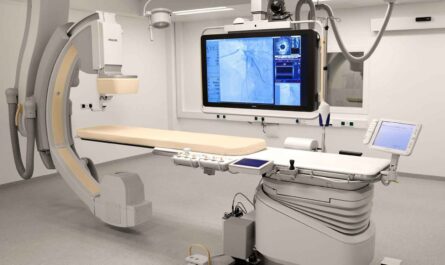In the realm of healthcare, scientific progress often leads to breakthroughs that transform the way we approach and manage various medical conditions. One such area of intense focus and advancement is the treatment of Inflammatory Bowel Disease (IBD). In this blog, we will embark on a journey to unravel the future of the IBD market, exploring the latest trends, innovative therapies, and the promising opportunities that lie ahead for patients and stakeholders.
Understanding Inflammatory Bowel Disease
Inflammatory Bowel Disease encompasses a group of chronic conditions characterized by inflammation of the digestive tract. The two main types of IBD are Crohn’s disease and ulcerative colitis. These conditions can cause a range of symptoms, including abdominal pain, diarrhea, fatigue, and weight loss. The impact of IBD on patients’ quality of life makes it an area of significant medical interest.
Trends Shaping the IBD Market
Personalized Medicine:
The era of personalized medicine is transforming healthcare, and IBD is no exception. Advances in genetic and molecular profiling are enabling clinicians to tailor treatments based on individual patients’ genetic and biological characteristics, leading to more effective and targeted therapies.
Biologics and Immunomodulators:
Biologic therapies have revolutionized Inflammatory Bowel Disease market by targeting specific components of the immune system responsible for inflammation. Ongoing research and development are expanding the arsenal of biologics and immunomodulators, offering patients a broader range of treatment options.
Digital Health Solutions:
Technology is playing a pivotal role in managing IBD. Mobile apps, wearable devices, and telemedicine platforms are empowering patients to monitor their symptoms, track their condition, and communicate with healthcare providers remotely, enhancing disease management and patient engagement.
Nutritional Therapies:
The role of diet in IBD management is gaining attention. Tailored nutritional approaches, including exclusive enteral nutrition and specific carbohydrate diets, are being explored as adjunctive therapies to reduce inflammation and improve symptoms.
Opportunities on the Horizon
Early Intervention and Diagnosis:
Advancements in diagnostic tools, including advanced imaging techniques and biomarker identification, hold the promise of earlier and more accurate diagnosis. Early intervention can significantly impact disease progression and patient outcomes.
Biosimilars and Cost-Effective Solutions:
The emergence of biosimilars generic versions of biologic drugs offers cost-effective alternatives for IBD treatment. Increased competition in the Inflammatory Bowel Disease Market can lead to reduced treatment costs and improved accessibility for patients.
Patient-Centric Care:
The focus on patient-centric care is driving the development of holistic treatment approaches that consider not only medical management but also patients’ emotional and psychological well-being.
Clinical Trials and Research:
Ongoing research efforts are continuously expanding our understanding of IBD’s underlying mechanisms and potential therapeutic targets. Participation in clinical trials provides patients access to cutting-edge treatments and contributes to the advancement of medical knowledge.
The future of the Inflammatory Bowel Disease market holds immense promise, fueled by innovative therapies, personalized approaches, and a growing emphasis on patient well-being. As scientific and technological advancements continue to unravel the complexities of IBD, patients and healthcare providers alike can look forward to a brighter horizon with improved outcomes, enhanced quality of life, and a deeper understanding of how to effectively manage this challenging condition.


